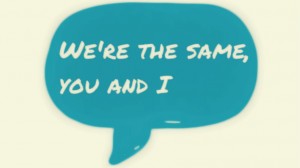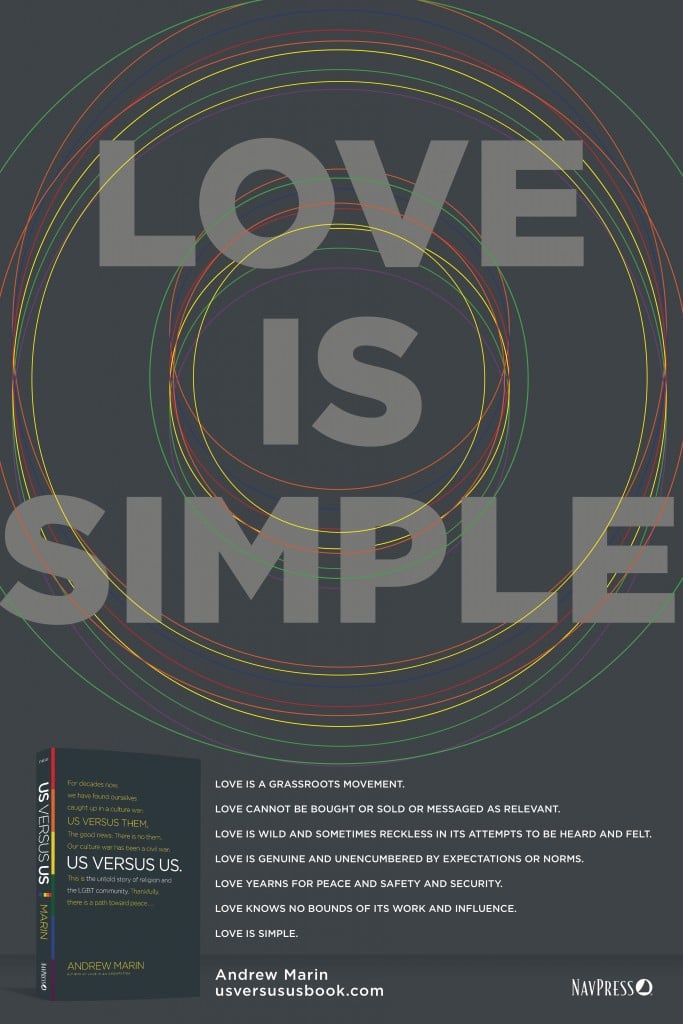 The following post is by Jason Bilbrey, our Director of Education and Community Relations here at The Marin Foundation. You can read more from Jason at his blog,www.jasonbilbrey.com or follow him on Twitter at @JasonBilbrey.
The following post is by Jason Bilbrey, our Director of Education and Community Relations here at The Marin Foundation. You can read more from Jason at his blog,www.jasonbilbrey.com or follow him on Twitter at @JasonBilbrey.
I spend a lot of my day championing empathy. At the intersection of sexual orientation, gender identity and faith, where we at The Marin Foundation operate, I frequently hear myself saying things like,
“Just imagine having the body of someone who’s not your gender. That’s what your friend may likely be experiencing.”
Or,
“You didn’t come to peace with your sexual orientation overnight, so your parents will probably need the same kind of space to process this new reality.”
Or,
“Your husband grew up hearing this promising narrative that marrying a woman would cure his unwanted same-sex attraction. You have every right to feel hurt and deceived–and so does he.”
It sounds trite, but empathy really is the cornerstone of fruitful conversation. In practicing empathy, you take the hurt, fear and anger of the other seriously. You take a risk also. Empathy, in the context of what is often termed a “culture war,” can feel like you’re lowering your defenses and ceding ground. You stop seeing the other as the enemy and start seeing them as a fellow human. Empathy restores humanity.
But this blog post isn’t about the merits of empathy.
Empathy can backfire. It can have the unintended, reverse effect of being unhelpful, disconnecting and dehumanizing. This is misguided empathy, as we teach in the Culture War Curriculum:
Often our best intentions of trying to connect cause us to say things that minimize or trivialize what makes the other person different. This tends to have the opposite effect of what we intended (i.e., it makes people feel less heard and understood). This is especially problematic when someone from the majority diminishes the experiences of someone from the minority.
Some examples:
- “Your desire to sleep with other men is no different from my temptation to cheat on my wife.” Comparing a same-sex relationship to whatever other actions one finds objectionable might come from a place of genuinely wanting to relate or be consistent in one’s ethical code, but those comparisons tend to overlook the ways lesbian, gay and bisexual experience is unique. Not to mention, it reduces that individuals orientation down to sex. In general, using your knowledge of LGBTQ issues to understand an LGBTQ individual is dangerous because your knowledge may be wrong or reductive of this person’s experience.
- “I know what you’re going through. I questioned my faith when my son came out to me too.” I’ve written previously about the experience of parents in the wake of a child coming out as LGBTQ. Yes, many parents do describe it as a sort of grief process, but no one experience is prescriptive. Emotional highs and lows, questions of faith, relationship journeys all differ widely between families. As helpful as it is to connect with other parents of LGBTQ children, there isn’t any blueprint for finding peace.
It’s incredibly important to be able to recognize that people react to experiences with the same fears, insecurities, hopes and desires as we do. That’s empathy. But it’s equally important that we recognize and respect that those reactions and experiences are, on the whole, entirely unique to them. It’s not helpful to compare.
In these misguided attempts to empathize, I think we make the mistake of trying to understand and address the issue more than the individual affected by it. As I’ve said before, we risk making a parody of the other when we stop seeing them as individuals and instead project our own understanding of the issue onto their story.
It may be well-intentioned. It may ultimately lead to deeper connection or understanding. But in the end, it’s a twisted form of empathy that seeks to reinforce one’s own perspective, not learn from the other’s.











